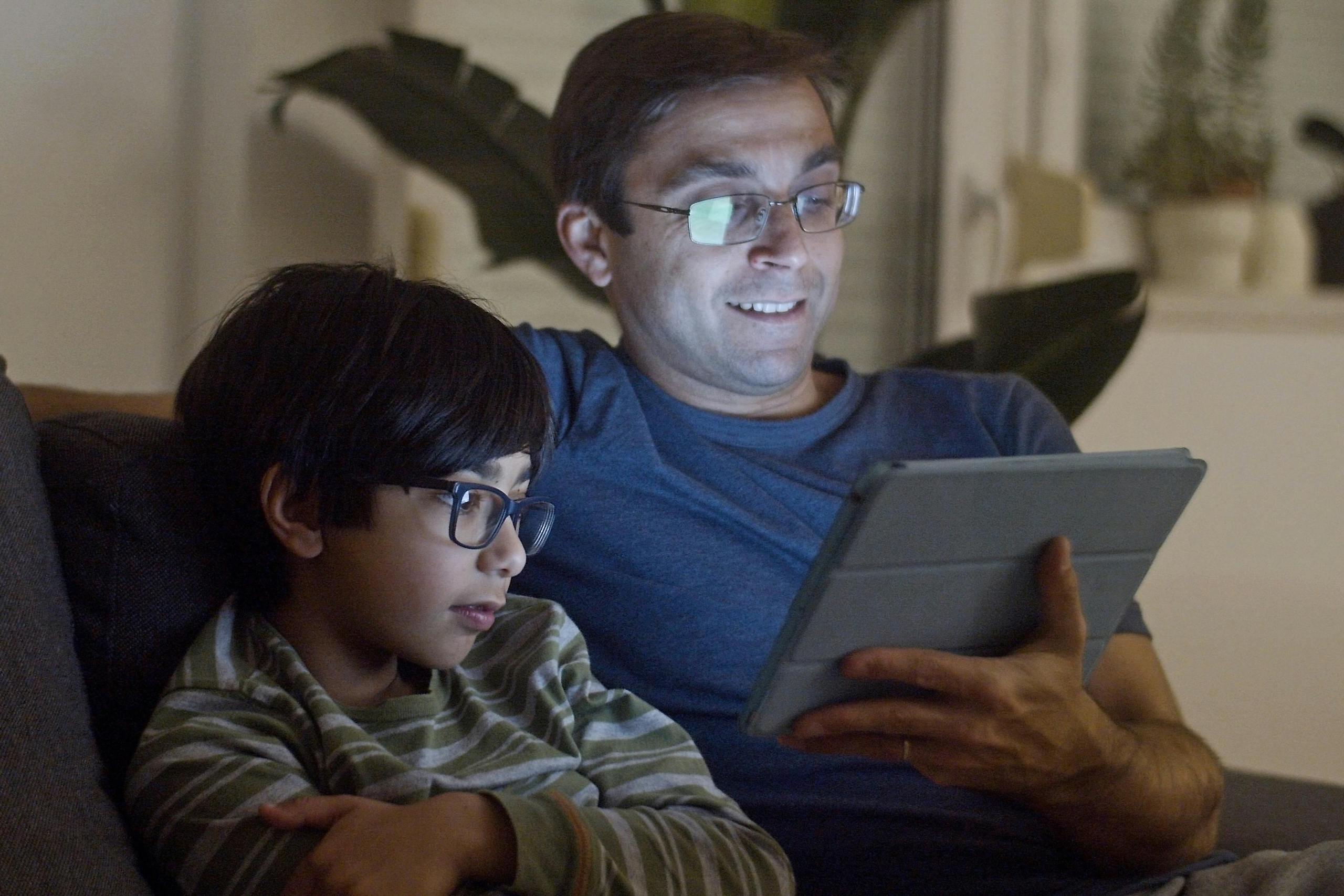As we continue our series on light exposure, let’s take a closer look at how light influences our health, performance, and overall wellbeing.
In last week’s post, we introduced the powerful role light plays in regulating our biological systems. Today, we’re focusing on artificial light at night – specifically, how the bright light from our homes, workplaces, and devices can impact our sleep quality, stress levels, energy, and even our metabolic health.
The Disruptive Effects of Blue Light
One of the most significant culprits in the battle against restful sleep is blue light. This high-energy visible light, emitted from screens on smartphones, tablets, computers, and energy-efficient LED lighting, plays a crucial role in regulating our circadian rhythms. Blue light exposure during the evening can signal to our brains that it’s still daytime, keeping us alert and suppressing melatonin production – the hormone that prepares us for sleep.
Research shows that prolonged exposure to blue light can delay the onset of sleep, reduce total sleep time, and diminish sleep quality. A study published in Proceedings of the National Academy of Sciences found that individuals using light-emitting devices before bed experienced lower melatonin levels, increased sleep latency (time it takes to fall asleep), and reduced REM sleep. This disruption not only leaves us feeling groggy and unrefreshed the next day but also affects our mood, energy levels, and stress response.
Sleep Quality, Hormonal Balance, and Beyond
Exposure to artificial light in the evening can disturb more than just melatonin production; it also affects other hormonal processes. General exposure to bright light at night disrupts the delicate hormonal balance that regulates sleep, mood, and stress.
While melatonin typically rises as the evening progresses, bright or blue-white light can trick our bodies into delaying this process. Beyond melatonin, artificial light also influences cortisol – the hormone associated with stress. Elevated cortisol in the evening can increase alertness, making it harder to relax, while also potentially affecting stress resilience, mood stability, and energy levels during the day.
Over time, these hormonal shifts can have a cumulative effect on our overall wellbeing. Chronic exposure to artificial light at night may lead to mood disturbances, higher stress levels, impaired focus, and even changes in metabolism, making it more challenging to maintain balanced energy, body weight and health.
Strategies for Better Light Hygiene
The good news is that there are practical ways to reduce the effects of artificial light and support better sleep and overall health. Here are some simple and effective strategies:
- Use blue light filters: Many devices come with built-in blue light filters, or you can download apps that adjust screen colors in the evening, like f.lux. These filters reduce blue light emission, helping your body wind down.
- Adjust screen brightness: Lower screen brightness in the evening to reduce eye strain and minimise blue light’s impact. This applies to TVs, laptops, tablets and smartphones.
- Consider blue light-blocking glasses: These glasses filter out blue wavelengths, making it easier for your body to produce melatonin and prepare for sleep. They’re widely recommended by many wellbeing experts for a reason.
- Reduce screen time before bed: Aim to limit screens at least an hour before bedtime. Try relaxing activities that don’t involve screens, such as reading, meditating, or taking a bath.
- Mimic natural lighting: Use warm, low-level, dimmable lights in the evening to replicate the relaxing ambience of sunset or an open fire. This will signal to your body that it’s time to start winding down.
- Establish a consistent sleep routine: Going to bed and waking up at the same time each day supports your body’s natural sleep-wake cycle, making it easier to fall asleep and wake up rested.
- Plan your activities around natural light: Schedule tasks during daylight hours to take advantage of natural light, which can boost energy, mood, and productivity … more on this in next week’s post!
The Role of Artificial Light in Modern Life
It’s important to acknowledge that avoiding artificial light entirely in our modern lifestyles is nearly impossible. From late-night work emails to binge-watching our favourite shows, bright screens and artificial lighting are a constant presence. However, the key is to understand its effects and then make intentional choices that support our wellbeing.
As always, my advice is about balance: instead of eliminating all artificial light, there are simple ways to modify our environments and habits to support health and wellbeing.
Moving Forward
In our fast-paced, tech-driven world, it’s essential to be mindful of how artificial light affects our sleep and overall health. By understanding its impact on our hormones and adopting practical strategies like those above, we can support better sleep, balanced stress, improved mood, and sustained energy.
In the next post, we’ll discuss maximising daylight exposure for health and productivity, exploring how natural light can enhance mood and performance.
In the meantime, consider how you might reduce your exposure to artificial light in the evenings, particularly if you have sleep or energy challenges – light exposure may be the missing piece.
Kate x


